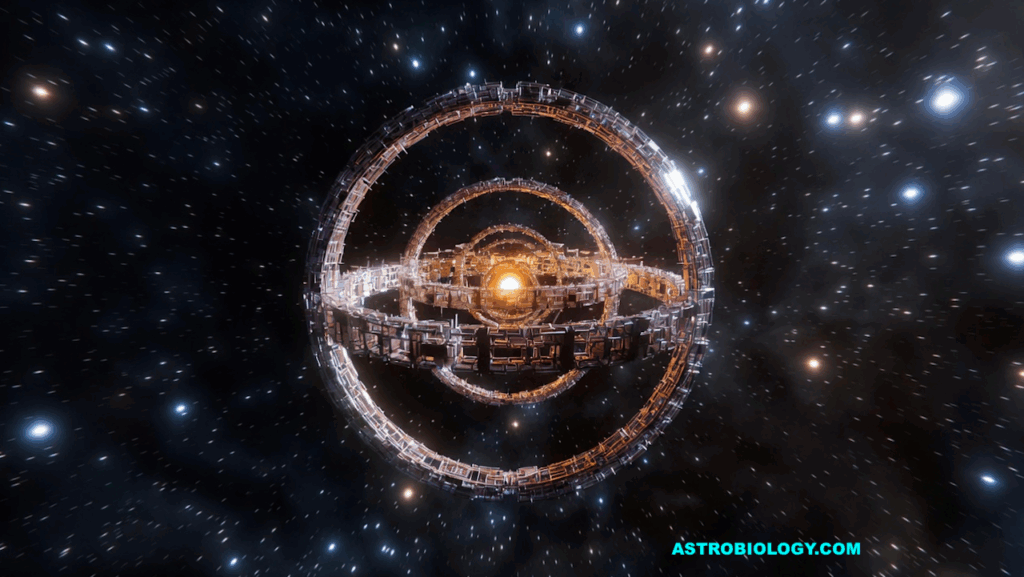Possibility of Dozens of Intelligent Civilizations in Our Galaxy

Is there anyone out there? This is an age-old question that researchers have now shed new light on with a study that calculates there could be more than 30 intelligent civilizations throughout our galaxy. This is an enormous advance over previous estimates which spanned from zero to billions.
One of the biggest and longest-standing questions in the history of human thought is whether there are other intelligent lifeforms within our universe. Obtaining good estimates of the number of possible extraterrestrial civilizations has however been very challenging.
A new study led by the University of Nottingham and published today in The Astrophysical Journal has taken a new approach to this problem. Using the assumption that intelligent life forms on other planets in a similar way as it does on Earth these researchers have obtained an estimate for the number of intelligent communicating civilizations within our own galaxy, the Milky Way. They calculate that there could be over 30 active communicating intelligent civilizations in our home galaxy.
Professor of Astrophysics at the University of Nottingham, Christopher Conselice who led the research, explains: “There should be at least a few dozen active civilizations in our galaxy under the assumption that it takes 5 billion years for intelligent life to form on other planets, as on Earth.” Conselice also explains that “The idea is looking at evolution, but on a cosmic scale. We call this calculation the Astrobiological Copernican Limit.”
First author Tom Westby explains: “The classic method for estimating the number of intelligent civilizations relies on making guesses of values relating to life, whereby opinions about such matters vary quite substantially. Our new study simplifies these assumptions using new data, giving us a solid estimate of the number of civilizations in our galaxy.
“The two Astrobiological Copernican limits are that intelligent life forms in less than 5 billion years or anytime after about 5 billion years — similar to on Earth where communicating civilizations formed after 4.5 billion years. In the strong criteria, whereby a metal content equal to that of the Sun is needed (the Sun is relatively speaking quite metal rich), we calculate that there should be around 36 active civilizations in our galaxy.”
The research shows that the number of civilizations depends strongly on how long they are actively sending out signals of their existence into space, such as radio transmissions from satellites, television, etc. If other technological civilizations last as long as ours which is currently 100 years old, then there will be about 36 ongoing intelligent technical civilizations throughout our galaxy.
However, the average distance to these civilizations would be 17,000 light-years away, making detection and communication very difficult with our present technology. It is also possible that we are the only civilization within our galaxy unless the survival times of civilizations like our own are long.
Professor Conselice continues: “Our new research suggests that searches for extraterrestrial intelligent civilizations not only reveals the existence of how life forms, but also gives us clues for how long our own civilization will last. If we find that intelligent life is common then this would reveal that our civilization could exist for much longer than a few hundred years, alternatively if we find that there are no active civilizations in our galaxy it is a bad sign for our own long-term existence.”
Conselice sums this up with “By searching for extraterrestrial intelligent life — even if we find nothing — we are discovering our own future and fate.”
Reference:
“The Astrobiological Copernican Weak and Strong Limits for Extraterrestrial Intelligent Life,” Tom Westby & Christopher J. Conselice, 2020 June 15, Astrophysical Journal [https://iopscience.iop.org/article/10.3847/1538-4357/ab8225, preprint: https://arxiv.org/abs/2004.03968].
The University of Nottingham is a research-intensive university with a proud heritage, consistently ranked among the world’s top 100. Studying at the University of Nottingham is a life-changing experience and we pride ourselves on unlocking the potential of our 44,000 students — Nottingham was named both Sports and International University of the Year in the 2019 Times and Sunday Times Good University Guide, was awarded gold in the TEF 2017 and features in the top 20 of all three major UK rankings. We have a pioneering spirit, expressed in the vision of our founder Sir Jesse Boot, which has seen us lead the way in establishing campuses in China and Malaysia — part of a globally connected network of education, research and industrial engagement. We are ranked eighth for research power in the UK according to REF 2014. We have six beacons of research excellence helping to transform lives and change the world.








